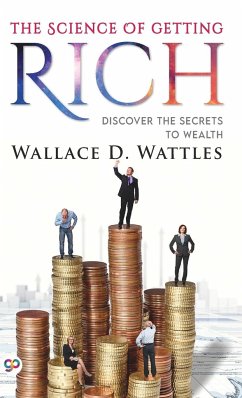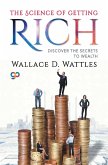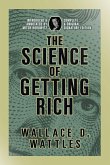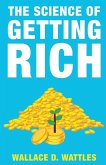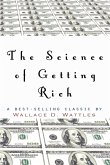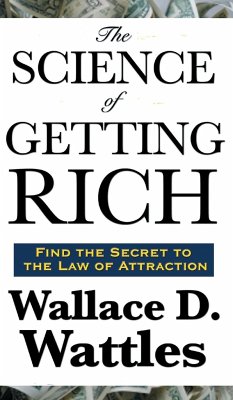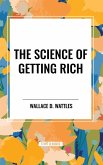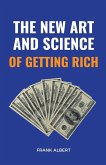Wallace D. Wattles introduced the world to the power of positive thinking. In his book, Wattles stresses the power of the human mind claiming that one's way of thinking can attract or repel wealth. According to him, there are certain laws that govern the process of acquiring riches. Once these laws are obeyed by any person, he will get rich with certainty. Discover the law of attracting wealth from among the first master to propagate it. Discover the secret of how to get rich, starting from where you are, with what you have. 'The Science of Getting Rich' holds the secret to how economic and emotional security can be achieved in a practical, imaginative and non-competitive way, while maintaining a loving and harmonious relationship with all of life. 'The Science of Getting Rich' remains relevant more than 100 years after its initial publication. ""Whatever may be said in praise of poverty, the fact remains that it is not possible to live a really complete or successful life unless one is rich. No man can rise to his greatest possible height in talent or soul development unless he has plenty of money; for to unfold the soul and to develop talent he must have many things to use, and he cannot have these things unless he has money to buy them."" -'The Science of Getting Rich'. About the Author: Wallace D. Wattles was an American author and a pioneer success writer. A practical author, Wattles encouraged his readers to test his theories on themselves rather than take his word as an authority, and he claimed to have tested his methods on himself and others before publishing them. Born in the mid 1800s during the War between the States, Wallace D. Wattles experienced a life of failure after failure, until he formulated and put into practice the principles laid out in 'The Science of Getting Rich'. His daughter Florence notes that in those last years, ""He wrote almost constantly. It was then that he formed his mental picture. He saw himself as a successful writer, a personality of power, an advancing man, and he began to work toward the realization of this vision. He lived every page... His life was truly the powerful life."" Although Mr. Wattles died relatively young, and although his work was largely forgotten for years, those who have studied and applied these principles throughout the 20th century have experienced remarkable results. They have gotten rich! Rhonda Byrne told a Newsweek interviewer that her inspiration for creating the 2006 hit film The Secret and the subsequent book by the same name, was her exposure to Wattles's The Science of Getting Rich. Byrne's daughter, Hayley, had given her mother a copy of the Wattles book to help her recover from her breakdown.
Hinweis: Dieser Artikel kann nur an eine deutsche Lieferadresse ausgeliefert werden.
Hinweis: Dieser Artikel kann nur an eine deutsche Lieferadresse ausgeliefert werden.

